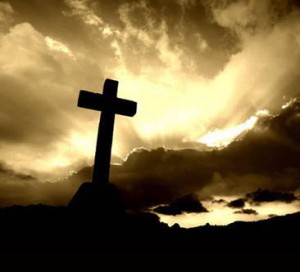 On Sunday April 20, the global Christian community celebrated the resurrection of Jesus Christ. People traveled from everywhere to worship with family and friends. Denominational customs and family traditions marked the most important time in Christendom. Indeed, Easter Sunday is one of the most beautiful occasions in Black Church tradition. In new outfits, folks strut into the sanctuary, signaling the dawn of spring and that the old has passed away. Little children stand in front of an encouraging congregation and beaming parents, reciting Easter speeches they’ve memorized for weeks.
On Sunday April 20, the global Christian community celebrated the resurrection of Jesus Christ. People traveled from everywhere to worship with family and friends. Denominational customs and family traditions marked the most important time in Christendom. Indeed, Easter Sunday is one of the most beautiful occasions in Black Church tradition. In new outfits, folks strut into the sanctuary, signaling the dawn of spring and that the old has passed away. Little children stand in front of an encouraging congregation and beaming parents, reciting Easter speeches they’ve memorized for weeks.
No doubt there was a little girl, in her pretty new pink dress and ruffled socks, looking around the congregation as many caught the Holy Ghost. Somewhere, a little boy fumbled with his new suit and tie, staring as his relatives shouted and ran around the church. Their hands lifted towards Heaven and tears streamed down their faces. On Easter Sunday, the songs of new life shook stained glass windows and reverberated through the streets. In impoverished neighborhoods and in middle class suburbs, in storefront churches and in sanctuaries seating thousands, African-Americans sang of a Christ, whose blood liberated them from sin and death and ensured everlasting life
Yet, when many left Sunday morning service, the uncertainty of life’s circumstances could not be escaped. Many traveled through communities still reeling from the effects of unemployment. When many Black families got together for Easter dinner, everyone was not there. Some were able to make collect calls from prison to wish their families well. Others were simply there in spirit as death had already taken them home. And though some couldn’t wait to leave church and change clothes, there were a few boys and girls who prayed that Easter service would last forever. Then, they would not have to return home and endure the physical or sexual abuse that has traumatized them. In Black churches on Easter Sunday, everyone sings of hope and resurrection. But, for many, that hope has not come and death still surrounds them.
What happens when a community celebrates a resurrection it does not see? How can one sing of new life and new possibilities when opportunities continue to disappear? Unemployment rates, twice the national average, still grip African-American communities. Bureau of Prison statistics make it impossible to believe one Black family exists without being impacted, directly or indirectly, by mass incarceration. Death tolls rise in low-income neighborhoods, as a result of violence and health disparities. Bearing the weight of their family’s economic and emotional stressors in the home, Black children are abused and neglected at rates higher than their counterparts. Persistent stereotypes continue to make it difficult for Black men to be seen as anything other than violent aggressors in society. Social structures cause Black girls and women to suffer in silence with little intervention and concern. Where is the empty grave, in the African-American community, signaling a new day and the fulfillment of a promise?
Jesus lives. Yet, many African-Americans are still waiting for the resurrection. Black churches must continue the prophetic task of dismantling systems of structural oppression that continue to permeate society, forcing African-Americans to remain among the least of these. Our sacred institutions must also create even more effective programs and initiatives that will provide solutions to the problems our communities face. How powerful would it be if African-American churches united to create businesses that employed congregants and community members? What would it look like if Black congregations addressed abuse in ways that provided victims with safety and the perpetrators with the help they so desperately need? What does resurrection look like in Chicago? Detroit? Memphis? When do African-American communities get to laugh at death because the sting is gone and scoff at the grave because it has no victory?
My childhood memories of Easter Sunday at Zion Hill Missionary Baptist Church in Winston-Salem, North Carolina bring some of the brightest smiles to my face. As a child, I was mesmerized by the beauty and pageantry of the day. Now, I know that Easter means so much more. It is about hope when there is no reasonable explanation to do so. It is about believing that pain is but for a moment and new life will come again. Easter Sunday is over. If God wills, we will see it again this time next year. Still, it is my prayer that we will see signs of the resurrection, in the communities I hold dear, soon and very soon.
 Candice Benbow is the host of Divine Dialogue, an iTunes podcast that discusses social and religious issues in the African-American Community. A writer, Candice is currently at work on her first book.
Candice Benbow is the host of Divine Dialogue, an iTunes podcast that discusses social and religious issues in the African-American Community. A writer, Candice is currently at work on her first book.













